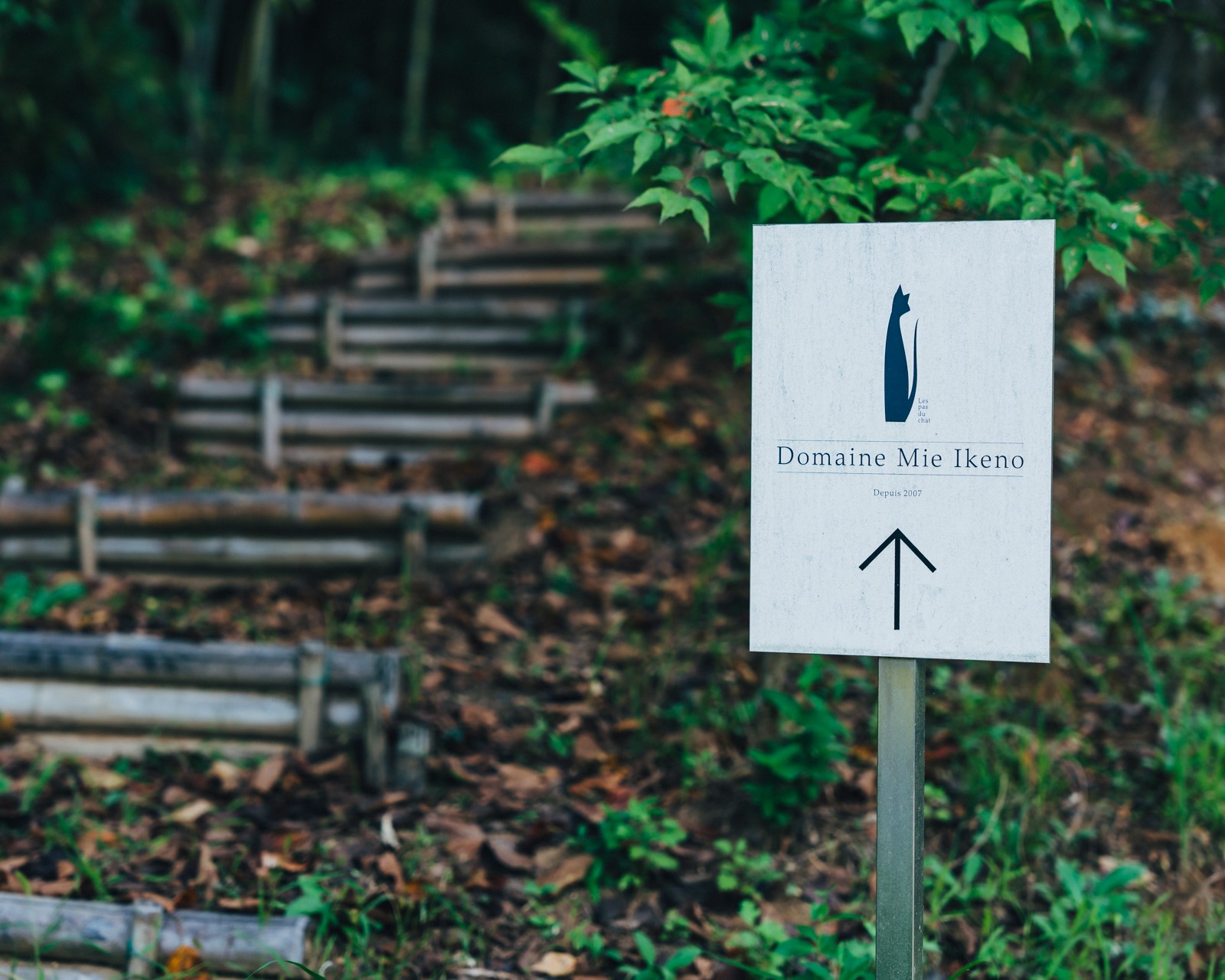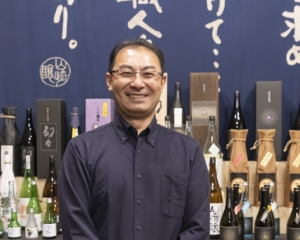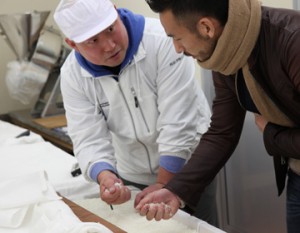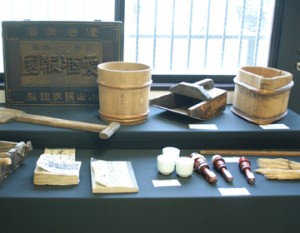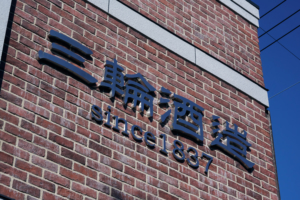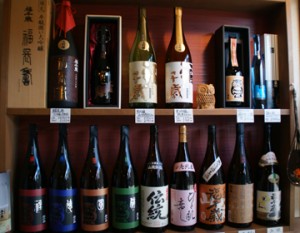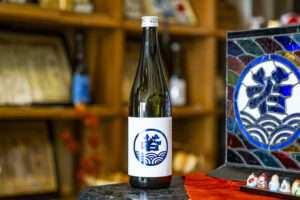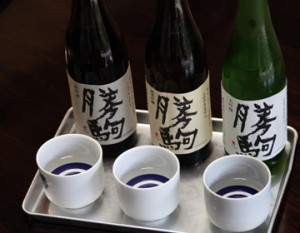The southern foothills of the Yatsugatake Mountains are blessed with a rich natural environment and the most hours of sunlight in Japan. In 2011, Ms. Mie Ikeno opened her winery, Domaine Mie Ikeno, in Hokuto City, Yamanashi Prefecture, where wineries are mushrooming one after another in search of the best weather conditions for grape cultivation. What kind of wines does Ms. Ikeno produce, attracted by the location with a great sense of openness that makes you want to take a deep breath?
A place where you can face grapes with peace of mind.
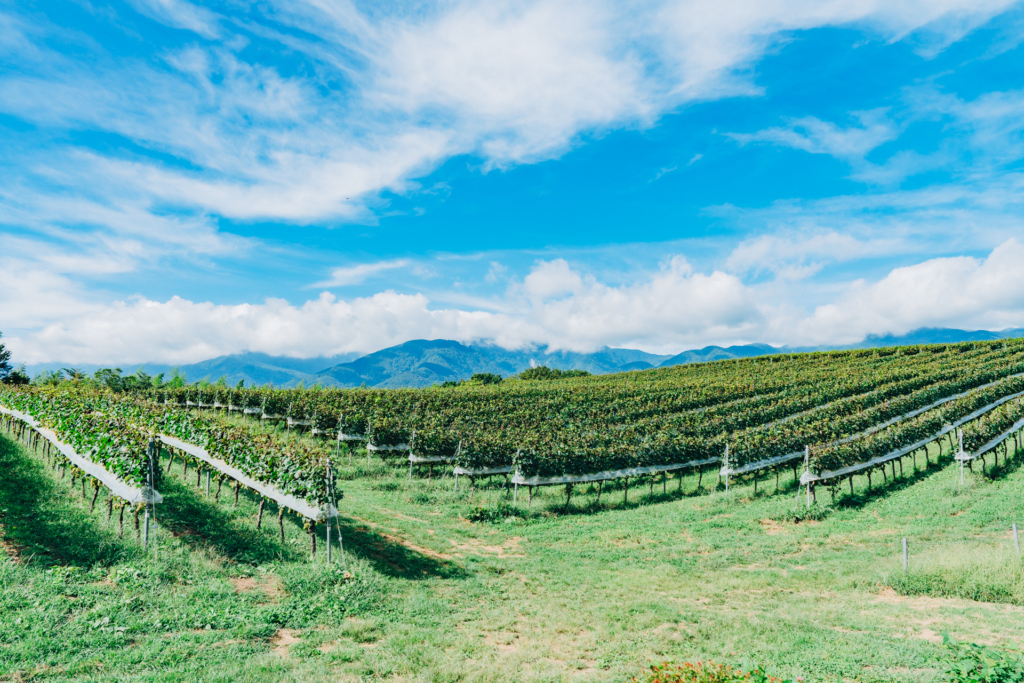
Under an endless clear blue sky, the vineyards spread across the hillside, waiting to be harvested with many grapes grown in the full sunlight. Four years later, when the vines finally began to produce small bunches of grapes, Ikeno Miei decided to plant a vineyard in the town of Kobuchizawa, Hokuto City, in order to produce high quality wine from grapes grown 100% in her own vineyard, Four years later, when the vines finally began to produce small bunches of grapes, he built the winery “Domaine Mie Ikeno. Domaine” means “home-grown vintner. The term is used in the Burgundy region of France and refers to a producer who handles everything from grape cultivation to vinification.
In front of the brewery is a hedge of grapes that seems to stretch to the sky, with the Southern Alps towering beyond. From the vineyard, there is a 360-degree view of Japan’s famous peaks, including the Yatsugatake Mountains, the Chichibu mountain range, Mount Fuji, and on clear days, the Northern Alps. Sometimes there is even a sea of clouds below. I felt at home here, and I was convinced that I could handle the grapes with care,” smiles Mr. Ikeno.
The 3.6 ha vineyard, which was created by cultivating abandoned land, is located at an elevation of approximately 750 m and slopes down to a volcanic ash soil with good drainage. Hokuto City boasts one of the highest rates of sunny days in Japan, and thanks to the “Yatsugatake Oroshi,” which blows down from the Yatsugatake Mountains, the air flows well, allowing plenty of sunlight to fall on the land. The long hours of sunlight allow the grapes to grow healthily, and the low rainfall and large temperature difference between day and night give the fruit a rich flavor and high sugar content. The reason why all the grapes are grown on hedges is that “the number of bunches per vine is limited, so the fruit is more concentrated than when grown on trellises.
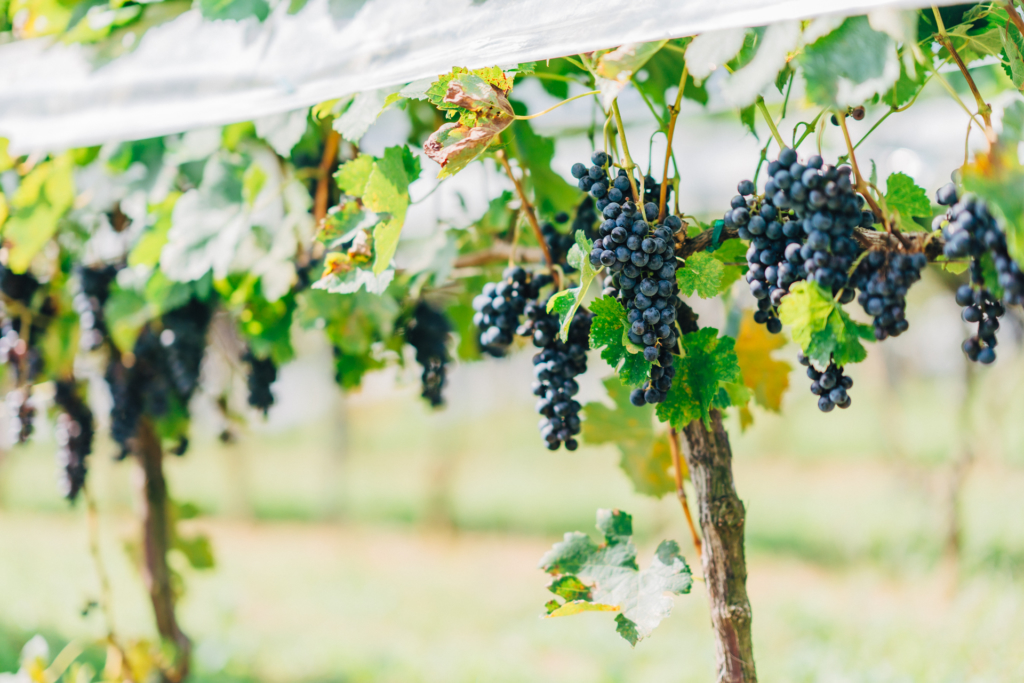
In order to create soft, densely packed soil in which the trees can grow easily, the farmers do not use herbicides, but instead use herbaceous cultivation and mow the grass frequently. Of course, no chemical fertilizers are used. Kobuchizawa is known as a “horse town” with horse riding clubs and ranches, including the Yamanashi Equestrian Center. The farmers use easily accessible horse manure for compost, and add rice hulls in the fall to make the soil microorganisms more active. The farmers are committed to creating an environment that allows the vines to grow healthy and spontaneously.
Mr. Ikeno grows only three varieties of grapes that he is truly in love with: Chardonnay, Pinot Noir, and Merlot. He tailors the fruit to a higher position to protect it from mud splash and moisture, and has installed handmade rain protection as a precaution against rot and disease. The handmade rain protection, although small, is proving to be extremely effective.
Before harvesting, the berries are checked frequently, and any damaged grains are removed by hand to ensure that only clean berries are used. He says, “We immediately decide what to do next according to the climate of the land and act accordingly. We repeat this process every year. He always sharpens his senses and observes the condition of the grapes.
Faithful to traditional Burgundy methods
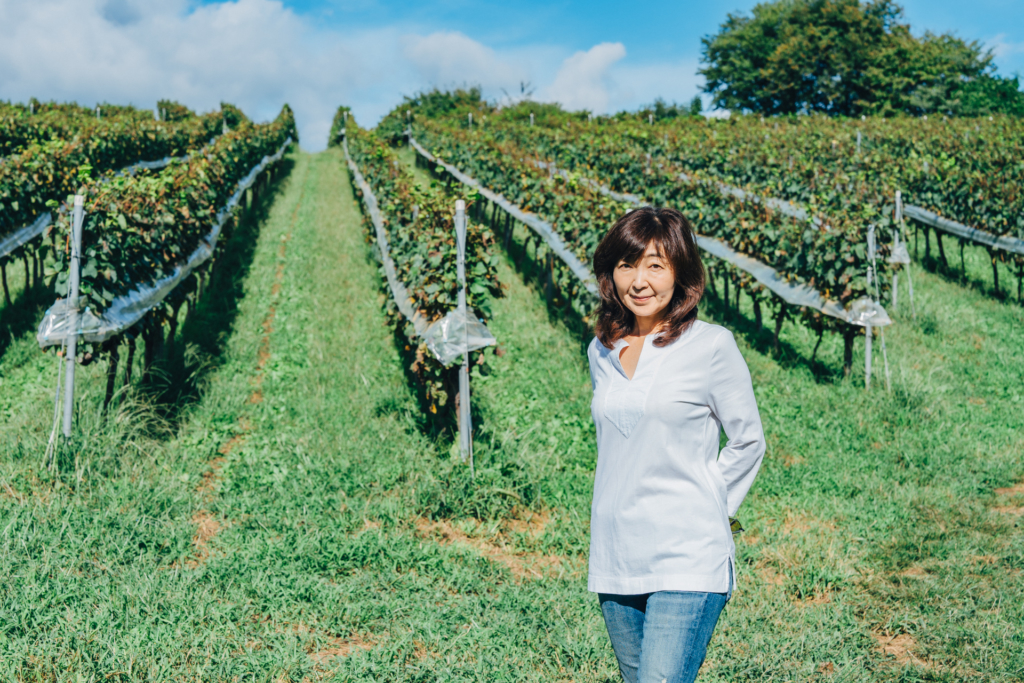
Ikeno, who originally worked as a magazine editor, says, “I love nature, people, and culture, and wine in my mind is the combination of these three things. Wine is a difficult culture whose ideology and individuality changes depending on the country and the winemaker, but I wanted to dare to challenge myself in this area.” After graduating from the Faculty of Pharmacy at the Université National de Montpellier in France in 2005, he became the seventh person in Japan to obtain the French national oenologist license, and after working in Burgundy, he returned to Japan, After working in Burgundy, he returned to Japan and established Les Pas du Château Co. He continues to serve as a judge for international wine competitions in Europe and Asia.
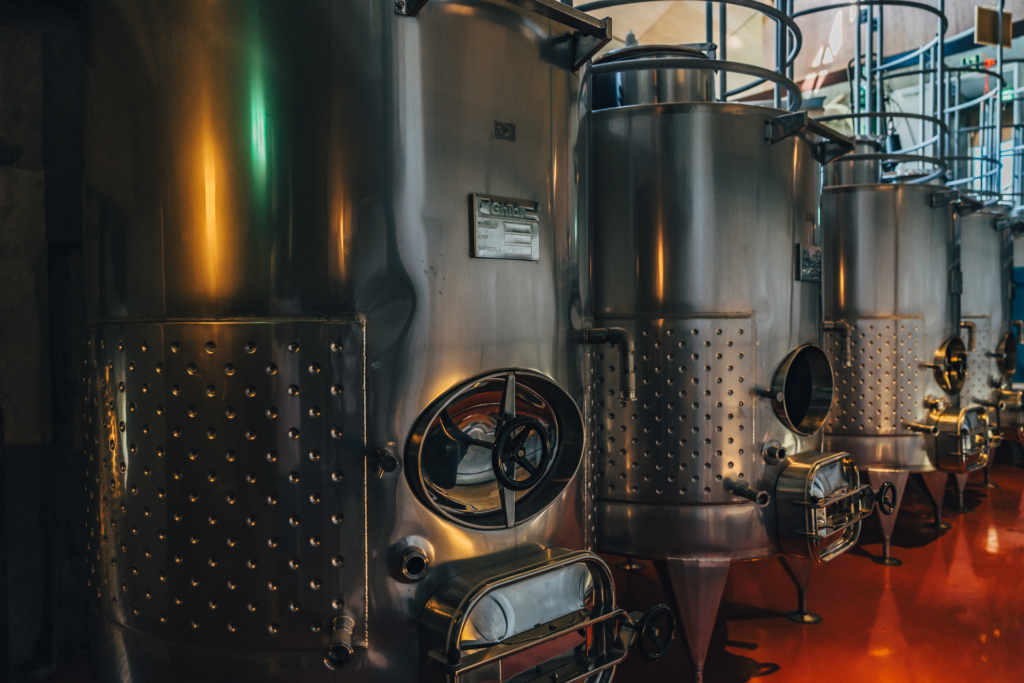
Mr. Ikeno’s unwavering desire to produce the beautiful wines of Burgundy in Japan has been a constant since the company’s founding. At the time of its establishment, it was difficult to obtain brewing equipment that was commonplace in France, but Mr. Ikeno’s brewery, built with ingenuity and ingenuity, employs a gravity flow system that does not place a burden on the wine. The gravity flow system, which uses gravity to drop the juice without the use of machinery, allows for vinification while maintaining the quality of the grapes without damaging their individuality, and is in line with Mr. Ikeno’s philosophy of always treating the grapes gently and with care. Generally, a pump is used after the grapes are put into the tanks, but Mr. Ikeno uses gravity flow until the final bottling.
While maintaining thorough sanitary control, he determines when to make modifications to bring out the true potential of the grapes. He says, “I wanted to reduce artificiality as much as possible and recreate the old-fashioned Burgundy method.
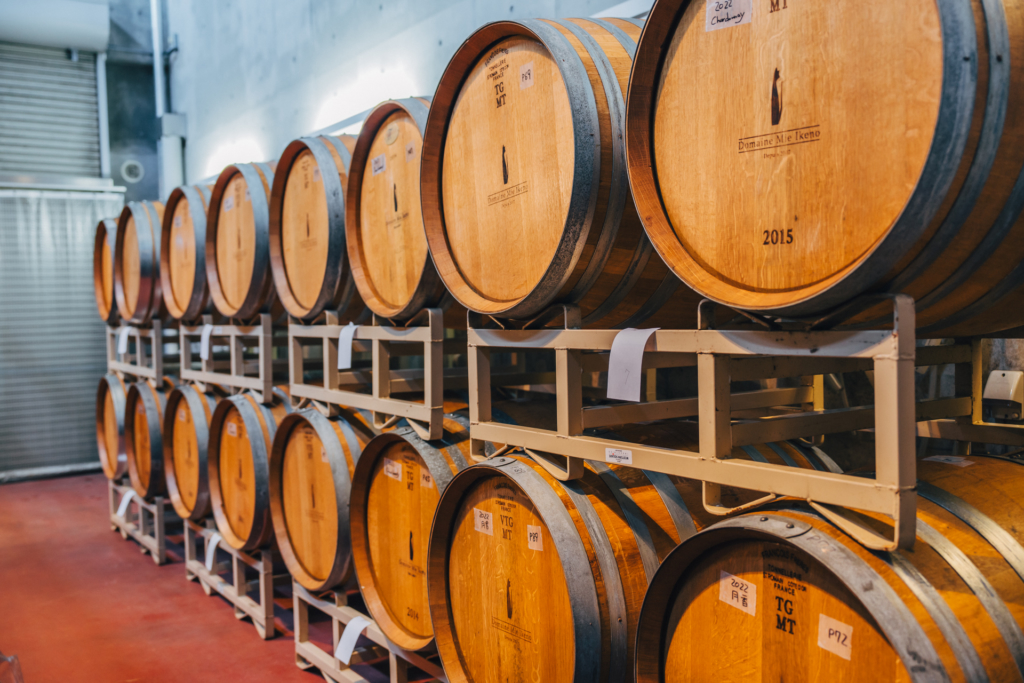
The method is to make wines that are aged for a long time in oak barrels for all three varietals. In particular, Pinot Noir and Merlot are aged in barrels for 2 to 3 years. The reason why they adhere to the traditional methods of Burgundy is because “tradition never betrays you,” he says firmly. Mr. Ikeno believes that the traditional methods handed down from generation to generation have been built up by the hands of many people, and that the reason they have continued to the present day is because the traditions are not mistaken. My method is as old as 300 years ago, but I want to continue the tradition and wisdom of my predecessors with all my effort,” he says.
A wine that snuggles up to evoke memories.
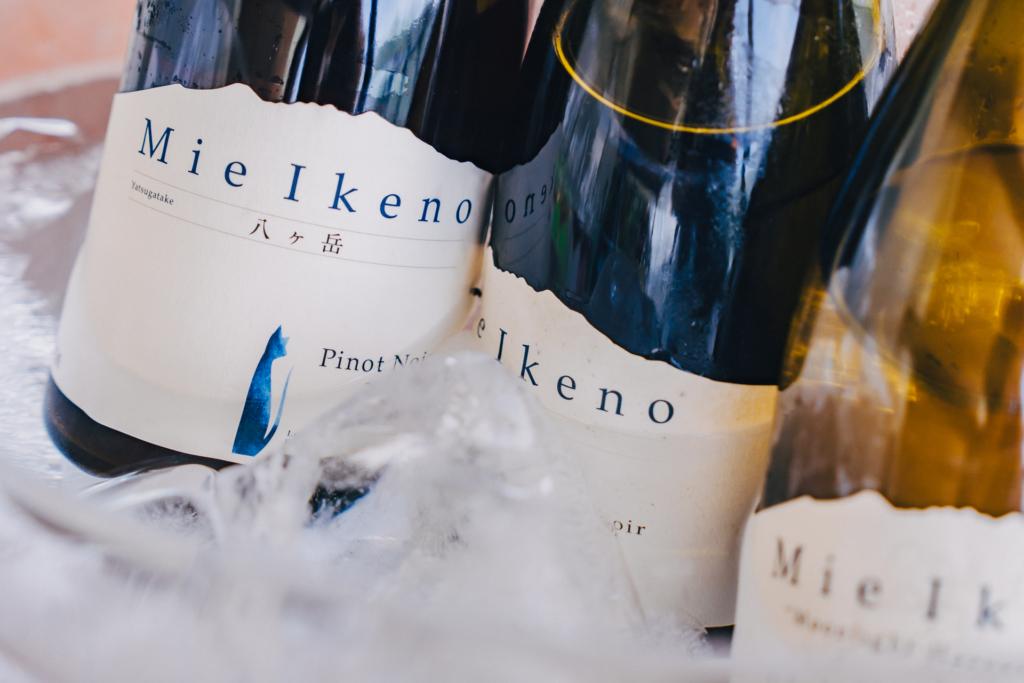
When he first established the winery, Mr. Ikeno said he was aiming for “dignified and elegant wines. However, as he has been involved in winemaking for many years, his values and approach have changed, and now he says, “I want the wines to be the kind of wines that gently nestle into your body, and when you drink them at the end of the day, you can relax and feel at ease.
Rather than having winemaker Mie Ikeno take the forefront, he hopes that the wine will speak naturally to the palate. The weather and natural environment of the year will be bottled in a sizzling way to create a taste that evokes that year. I hope that this wine will be a trigger for people to talk about the year with their loved ones and bookmark a page in their memories,” he said.
Gekka” born from Night Harvest
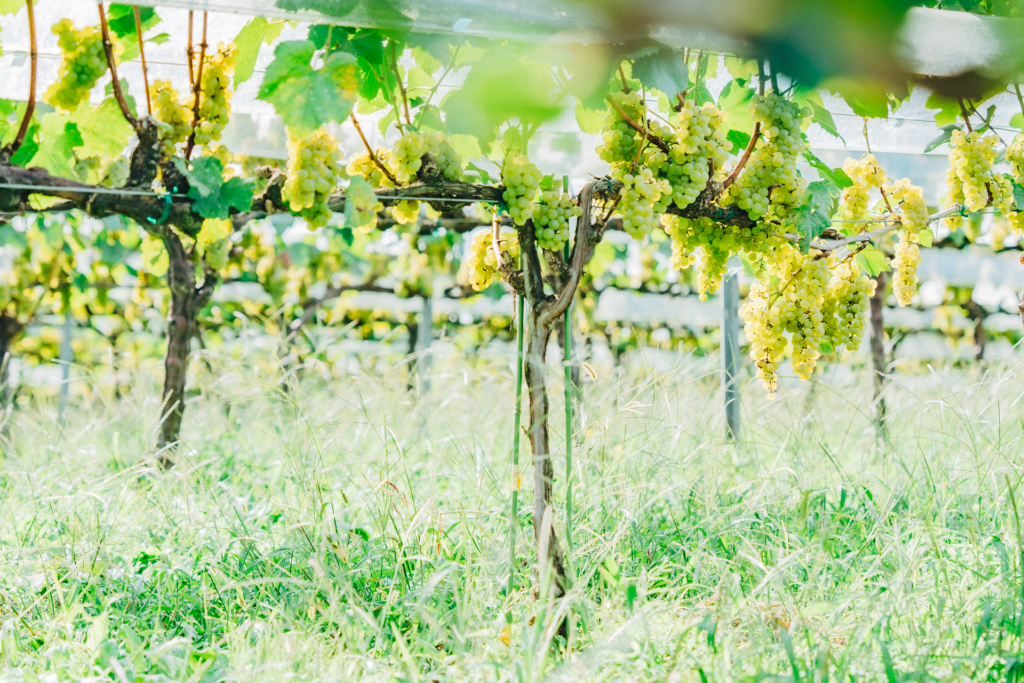
Mr. Ikeno now wants to carefully manage this one vineyard so that he can take care of every corner of it properly. Sometimes he even conducts “night harvests,” harvesting Chardonnay grapes late at night with headlights on. Because grapes lose sugar and acidity when exposed to sunlight, harvesting at night, when the temperature is cooler, allows the grapes to retain their sugar, acid, and aroma.
The brand name “Gekka” made from Chardonnay harvested at midnight produces a full-bodied wine with a concentrated, fresh aroma and clear acidity. On the other hand, Chardonnay harvested during the daytime produces a thicker, richer, more elegant wine, and the difference in harvest time is clearly expressed in the wine’s taste.
A place of rest and relaxation where everyone can smile.
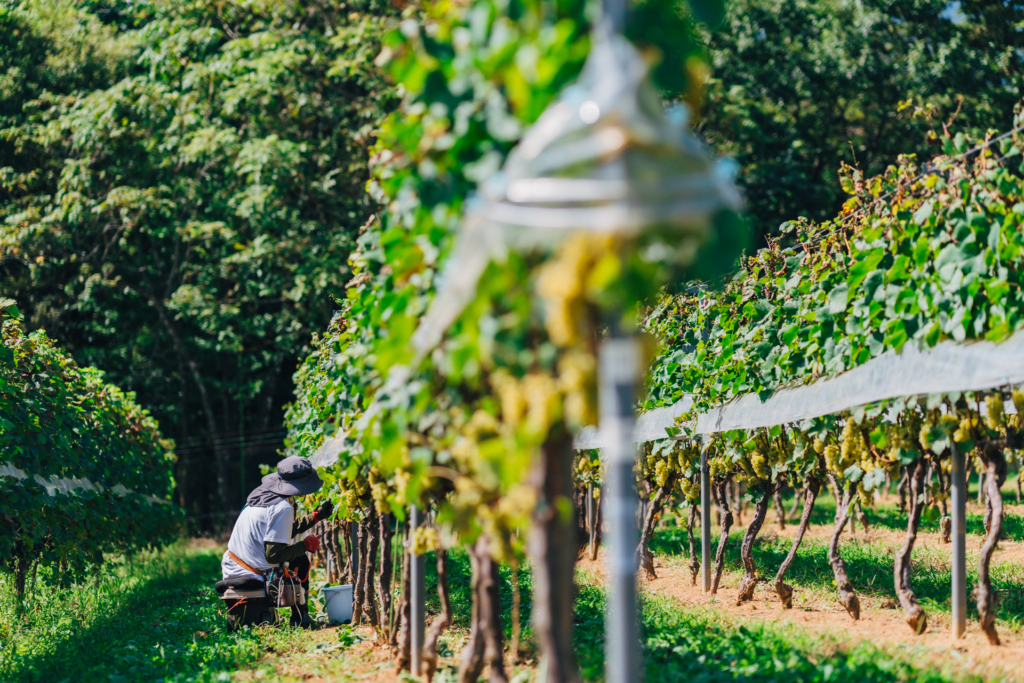
Looking back on the 16 years since he began planting grapes, Mr. Ikeno smiles and says, “It’s been a lot of fun. In an effort to respond to offers from overseas, he plans to ship to New York and Hong Kong this year. Ikeno, who has been vigorously engaged in winemaking and selflessly overcoming the challenges before him, looks ahead to the future, saying, “I have been stoic up to now, so as I get older, I want to build a place where I can have fun with many people and create an environment where everyone can be happy. I want to create an environment where everyone can be happy.
The taste of wine changes dramatically depending on the state of the winemaker. The wine “Mie Ikeno” expresses the fresh air of the southern foothills of the Yatsugatake Mountains and Ikeno’s gentle personality.



